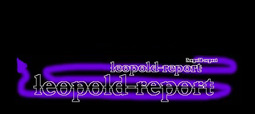At 30 May, 1988, Deputy Investigation Leader Ingemar Krusell of the
Palme Murder Investigation Group (PU) sent a letter to the Office of Councillor
Nils G. Rosenberg at the Swedish Foreign Office. In the letter, PU requested
written answers to a number of questions. The letter is quoted in the report
from the Swedish Government's Palme Commission (GK), SOU 1999:88, page 435-6,
and follows below in Leopold Report's translation:
During the ongoing investigation into the assassination of Prime Minister
Olof Palme, and the search for a perpetrator or perpetrators, [PU] has received
several suggestions about various foreign intelligence services. For professional
assessment of these suggestions, more detailed knowledge of the intelligence
organizations' status in relation to [their respective] governments and
parliaments, their organization and operational behaviour etc is required.
This applies, for example, to CIA, an organization that for the layman appears
as a "state within the state", and shrouded in myths with regard
to its activities.
In the Palme murder investigation material there are in section H 425 a
number of items that suggest that the CIA in one manner or other instigated
the murder. These point less to concrete suspicions than to hypothetical
assumptions about possible motives. The Swedish Security Police (RPS-Säk)
has stated that an assessment of the organization from the Minister at the
Swedish Embassy in Washington would be an advantage for the purpose of collecting
knowledge about the CIA's activities.
Referring to today's telephone conversation, [we] request a written statement
in response to the following questions:
1. What is the CIA's current status in relation to the US Government and
the Congress?
2. Has the CIA by the Constitution or otherwise been assigned any independent
executive status in connection with security issues or in the design of
its policies on political issues?
3. What is the CIA's primary mission today and how is its activity organized?
4. What was the US perception of Sweden and Swedish politics at the time
of the murder of Prime Minister Olof Palme? (The question is asked in view
of the "manifestations" made by the US during the Vietnam War,
[such as] the recall of its Ambassador [to Sweden], etc.)
5. What can we presume was the CIA's objectives for its operations in Sweden
in the mid-1980s?
6. Did the US or its intelligence service CIA - from an objective assessment
- in the beginning of 1986 have any reason to consider the person and politician
Olof Palme a danger to their own interests, [indicating that] a removal
of him was imminent?
7. Is it in a foreign policy perspective customary that the major powers'
intelligence agencies eliminate or order the elimination of politically
inconvenient people in leading state functions?
(The question is asked in view of the frequent objection that the goodwill
loss for the power in question from the discovery of their secret services'
culpability would be much greater than the possible benefits of the removal
of the person in question.)
8. As follow-up to questions 6 and 7: Would, according to the Foreign Ministry's
assessment, any major power, such as the US through the CIA, in the case
of a "yes" answer to question 6, be prepared to eliminate a state's
leading politician, despite the risk of a large goodwill loss?
9. Has the Foreign Ministry and its officials at the Swedish Embassy in
Washington after the assassination of Olof Palme received or experienced
any kind of reaction from any non-official US source, from which one could
draw conclusions about for example a CIA involvement in the murder?
The following is the Commission's comments to the letter:
The Commission's review of the Foreign Ministry's archives revealed that
the letter prompted then Cabinet Secretary Pierre Schori, at 7 June, 1988
(that is, a few days after the so-called Ebbe Carlsson affair broke out),
to get in contact with the Chief of the Security Police, Sune Sandstrom.
Schori underlined, according to the Foreign Ministry's record, "the
dubious aspects of the request", after which Schori and Sandstrom agreed
that the letter could be disregarded with no further action. Also, no response
to this request has been filed in PU's archives.
You can read Leopold Report's
interview with Krusell (in English translation) here.
Back to the article

|


